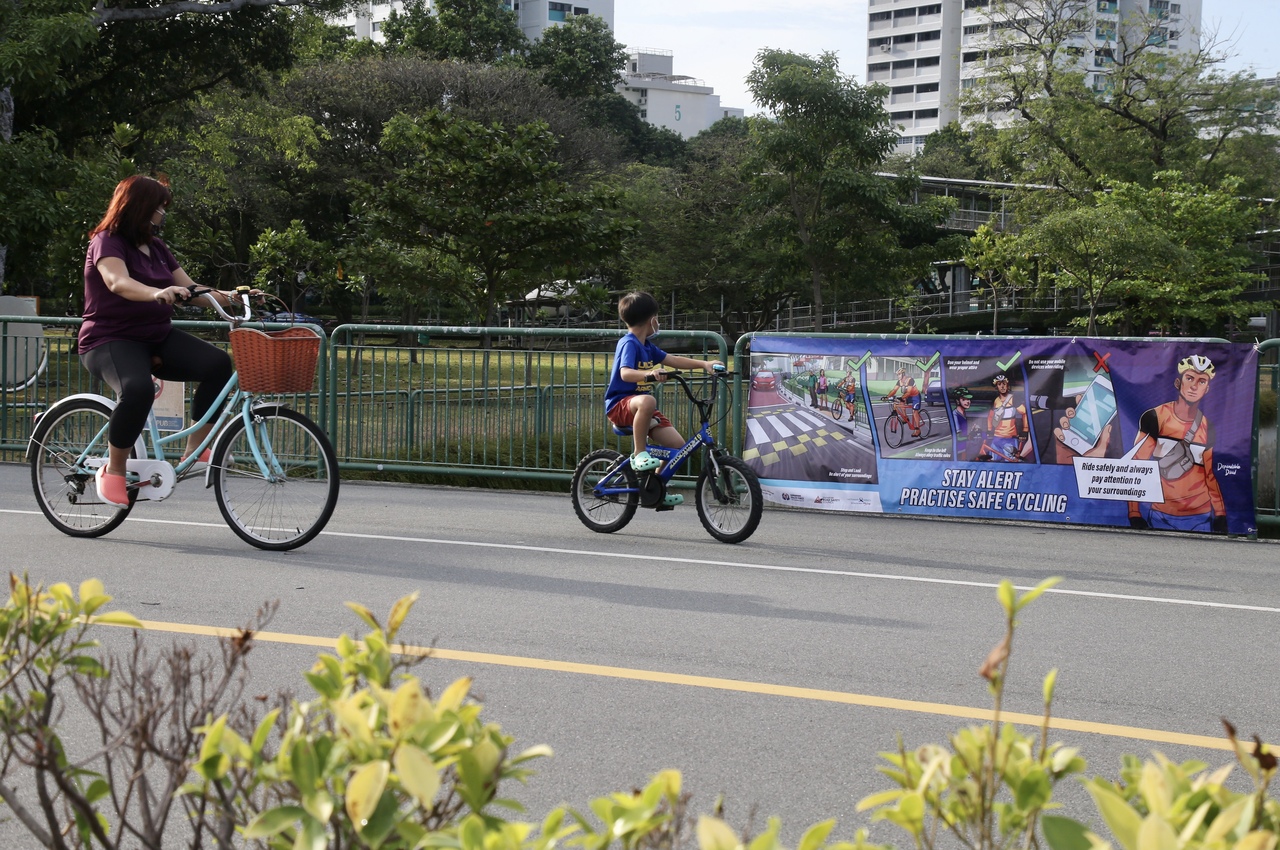Important to engage cyclists and other road and path users on safety: Faishal
Sign up now: Get ST's newsletters delivered to your inbox

Conflicts between motorists, cyclists and pedestrians have continued to flare up as more people share public paths and roads here.
PHOTO: LIANHE ZAOBAO
Follow topic:
SINGAPORE - With more people taking up cycling amid the pandemic, being on the ground to engage cyclists and other road and path users on safety has become even more important, Minister of State for Home Affairs Muhammad Faishal Ibrahim said on Monday (March 15).
"Road safety efforts need to be ground-up and have to be continual. When it is ground-up, you work with the community and they own the safety space and they can co-create it," he added.
He was speaking to reporters at East Coast Park during one such effort. With him were Singapore Road Safety Council (SRSC) chairman Bernard Tay and representatives from the Traffic Police and Land Transport Authority. They spoke to cyclists and gave out fliers with tips on using bikes responsibly.
This is part of a series of engagements launched by Dr Faishal in his Nee Soon constituency last month, with various agencies and interest groups collaborating to spread the safety message in different areas.
He said: "It is important for us to continue going to the ground to share repeatedly the importance of (being) gracious and, wherever possible, giving way to others... If we do it across Singapore, I am quite confident it will have some positive impact to our road safety landscape here."
Dr Faishal, who is also chairman of the Active Mobility Advisory Panel, added: "The agencies are coming together in a concerted effort to not only come up with policies and regulations, but really go deeper."
While Singapore is small, the people will still be able to enjoy the space there is if safety can be promoted across the board, he said.
His comments come as conflicts between motorists, cyclists and pedestrians have continued to flare up as more people share public paths and roads here.
SRSC's Mr Tay noted that there have been recent newspaper forum letters about how cyclists and pedestrians in East Coast Park are not giving way to each other. "This can be avoided if everybody's mindsets can be changed," he said. However, he also said changing such habits can take a very long time.
"Road safety is a marathon. This is one of the reasons why we try to (inculcate) habits at the school level. Start young," he said, adding that hopefully, the young ones can also do the same with their parents or grandparents.
While SRSC's efforts to engage the public have been hampered due to Covid-19, it is now tapping social media to conduct outreach.
Ms See Hwee Hwee, 43, who cycles every fortnight, said raising awareness is crucial, recounting how a friend fell when she was cycling at night without a helmet and suffered facial cuts and nerve damage to her arm.
Ms See, a nurse, was at the park with her two sons aged six and seven. She said: "I worry for my children's safety, so I always make sure they have a helmet (on). It is troublesome but I will wear one too."
Mr Sean Teoh, 29, who is self-employed, said it made sense that wearing a helmet while on the road and turning on front and rear lights after dark are in the regulations for cyclists, as indicated in the safe cycling flier.
"But common sense is not common sometimes," he said.
When he cycles, he said he only uses footpaths or park connectors. "Bicycles can only reach a certain speed but cars can reach a much higher speed. So sharing the same road doesn't make much sense."
"It comes down to whether people are considerate to one another, but I think mindsets take time to change. If we want a solution that makes everybody happy, we need to allocate some space to slower transport modes. Cyclists don't belong on pedestrian paths and they don't belong on roads either."

